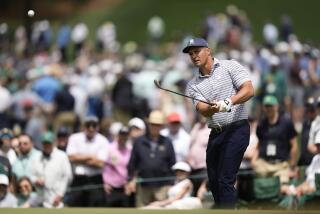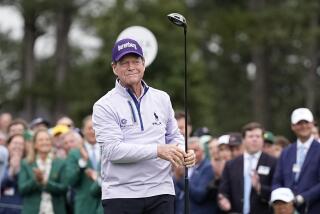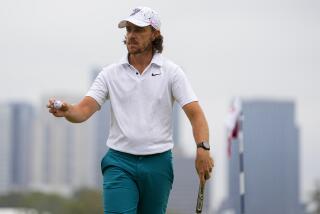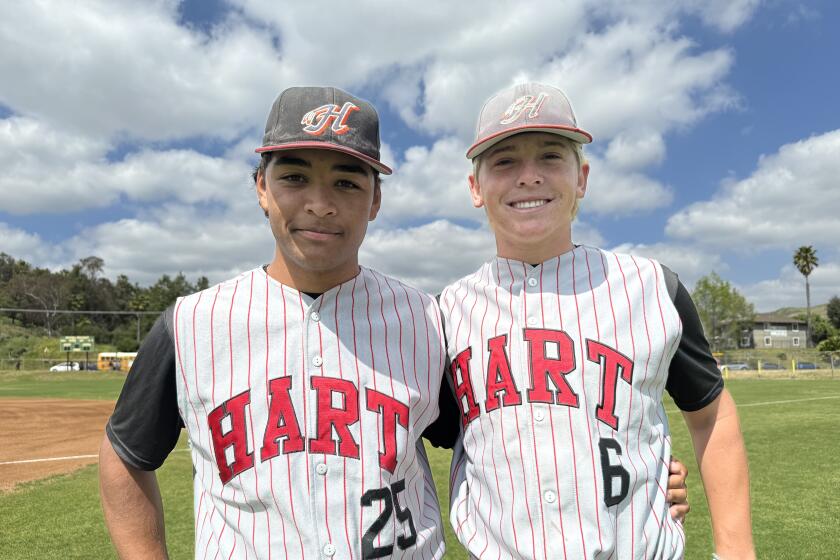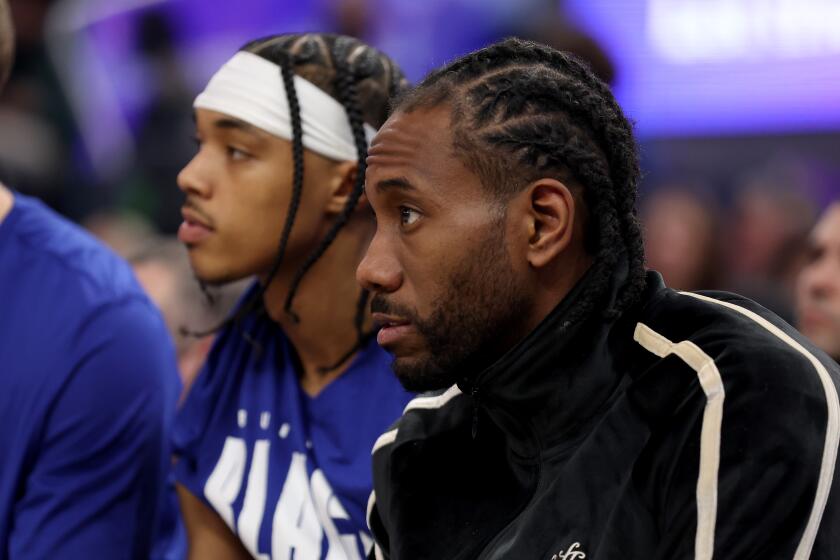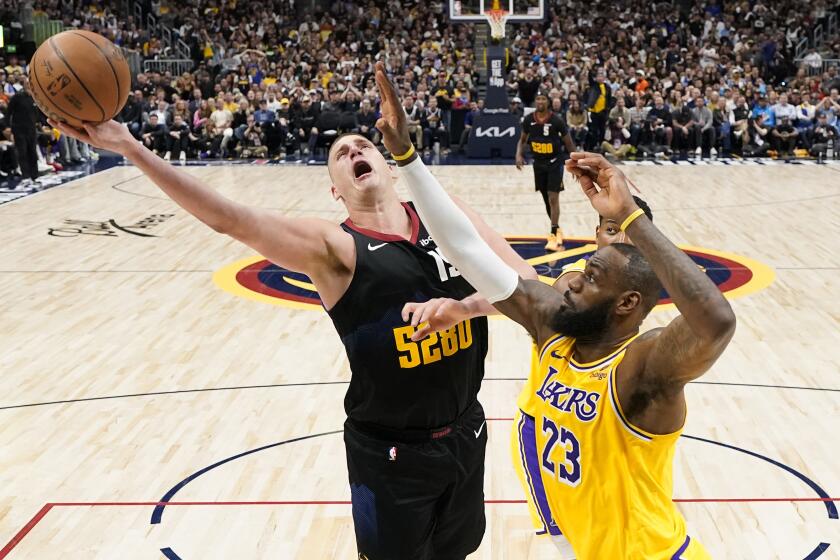Phil Mickelson is the main man at U.S. Open
From Bethesda, Md. — It is wrong to think of Phil Mickelson as an elder statesman of the game he plays. He will turn 41 Thursday. That’s hardly elderly, hardly in the category of Tom Watson, Jack Nicklaus or Arnold Palmer.
But there is no questioning the “statesman” part.
On the day before the day on which he will tee it up in his 21st U.S. Open golf tournament, Mickelson was the player who brought out the cameras and the crowds, who gave the buzz its volume.
This Tuesday before this major was like any Tuesday before any major. They play practice rounds and sell lots of tickets for people to watch who don’t have tickets to watch the real thing. It is relaxed and comfortable, yet formal enough to prompt an official to announce names and quick resumes of players on the first tee.
There will be so much pressure starting Thursday that the players, especially the veterans, have mastered the art of allowing none on Tuesday.
Mickelson, who will feel that heat more than any other player when the real tournament begins, walked the fairways of Congressional Country Club with the look of a man on vacation, not on death row. He played in a foursome with Dustin Johnson, Jeff Overton and Hunter Mahan. He was the biggest attraction and will be for as long as he has a sliver of a chance. You could tell from half a mile away where on the course the main man was. The size of the spectator gathering and the sound it made took care of that.
Other practice groups hit three and four balls on every shot. They dawdled around the course. They chipped and putted from different angles at each green.
Mickelson’s foursome hit and walked, but with big smiles. Because this was Mickelson’s group, there was a wager. Mickelson is an action junkie who, if he could, would try to get a bet down with his neighbors on whose rose bush would bloom first.
For the record, Mickelson and Overton lost the match, one-up. The size of the bet went unstated.
Most of the time, Mickelson’s coach, Butch Harmon, marched by his side. Golf Channel analyst Brandel Chamblee walked along part of the time too. What could be more casual than letting the media in on your swing thoughts?
As he always does, even during tournament play, Mickelson chatted with fans in the galleries, even looked them in the eye as he walked and talked. He knows that they know that he is this tournament’s big deal. Others would shrink from that. Mickelson embraces it.
And there is so much reason for him not to.
He has won the Masters three times, including last year, and the PGA once. But so often, the U.S. Open has treated him like an interloper. The tournament that almost always ends on Father’s Day has all so often made him feel like an unwanted son.
He has finished second five times, more than anybody else in history. In his 20 attempts, he has been in the top five seven times. In 1999, he was second to Payne Stewart; in 2002 to Tiger Woods; in 2004 to Retief Goosen, in 2006 to Geoff Ogilvy and in 2009 to Lucas Glover.
The 2006 tournament at Winged Foot in New York was the sharpest of all the daggers. Needing only a bogey on the final hole, Mickelson made a double. He tried to hit the risky under-a-tree-and-over-a-trap shot from alongside a sponsor’s tent, rather than making a safe pitch out. He hit the tree. The gambler had gambled and the dealer, always with the best odds, had turned over a king and an ace.
He is back again, and, while he professes a different approach, it remains to be seen whether he can refrain from taking a hit when his hand shows 13 and the dealer has 16.
“I think that, having come close and having finished second, being in contention so many times through the years,” he says, “I really believe that I can win this tournament.”
He says the new approach will be one of focus.
“If you focus so much on the result, on winning,” he says, “sometimes you can get in your own way.”
Mickelson seldom gets in his way in things that matter greatly in his game. His popularity has remained off the charts through thick and thin. He is among a handful of stars in any sport identifiable by first name only. That’s especially significant if your first name is the common “Phil.”
With Woods injured and out — and continuing to slip in popularity for off-course misdeeds and on-course demeanor — Mickelson has been willed an increasingly important role: He is the big-name pro golfer who can also win, do so without throwing clubs and cursing the fates, and still leave the fans with the feeling that, if he had time, he’d have them all over for dinner.
He is the statesman.
Luke Donald is No. 1 in the world and playing so consistently that it is startling. Steve Stricker is the highest-ranking U.S. player — a notch above Mickelson’s No. 5 — and is, like Donald, a likeable person and huge talent.
But Mickelson, who combines a savvy understanding of public relations with genuine decency and a perceived good-guy personality, is the man in golf.
If being close a lot is a prerequisite for eventually winning the U.S. Open, then Mickelson has a great chance in his 21st try. But if he doesn’t win, yet continues to smile the smile, walk the walk and talk the talk, little will have changed come Monday morning.
He will still be the statesman.
More to Read
Get our high school sports newsletter
Prep Rally is devoted to the SoCal high school sports experience, bringing you scores, stories and a behind-the-scenes look at what makes prep sports so popular.
You may occasionally receive promotional content from the Los Angeles Times.
